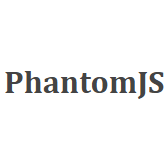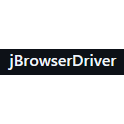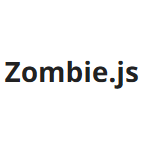
SlimerJS
SlimerJS is a free, open-source scriptable browser designed for web developers, enabling the automation of tasks such as webpage navigation, link interaction, and content modification. Operating on Gecko, Firefox's engine, it supports both headless and traditional modes, making it ideal for functional testing, web scraping, and network monitoring.
Top SlimerJS Alternatives
PhantomJS
PhantomJS is a headless web browser that executes JavaScript, compatible with Windows, macOS, Linux, and FreeBSD.
trifleJS
TrifleJS is a headless browser tool designed for test automation, utilizing the V8 JavaScript engine to emulate Internet Explorer environments.
HtmlUnit
HtmlUnit serves as a GUI-less browser designed for Java applications, enabling developers to model HTML documents and interact with web pages programmatically.
browserless
Browserless offers an advanced browser automation solution designed to scale effortlessly while eliminating the complexities of maintenance.
jBrowserDriver
jBrowserDriver is a programmable web browser driver designed for embedding in Java applications, fully compliant with the Selenium WebDriver specification.
ScrapFly
Effortlessly collect web data with ScrapFly’s suite of powerful APIs designed for developers.
WebKit
It provides robust support for rendering web content and executing JavaScript, while allowing developers to...
Top SlimerJS Features
- Scriptable browser automation
- Headless mode support
- Gecko engine utilization
- Firefox compatibility
- Functional testing capabilities
- Page content modification
- Network monitoring features
- Screen capture functionality
- Web scraping support
- External JavaScript integration
- CasperJS compatibility
- Cross-platform availability
- Open source development
- Customizable scripting options
- Similar APIs to PhantomJS
- User-friendly command line interface
- Content interaction flexibility
- Lightweight performance
- Easy setup process
- Community-driven improvements.







